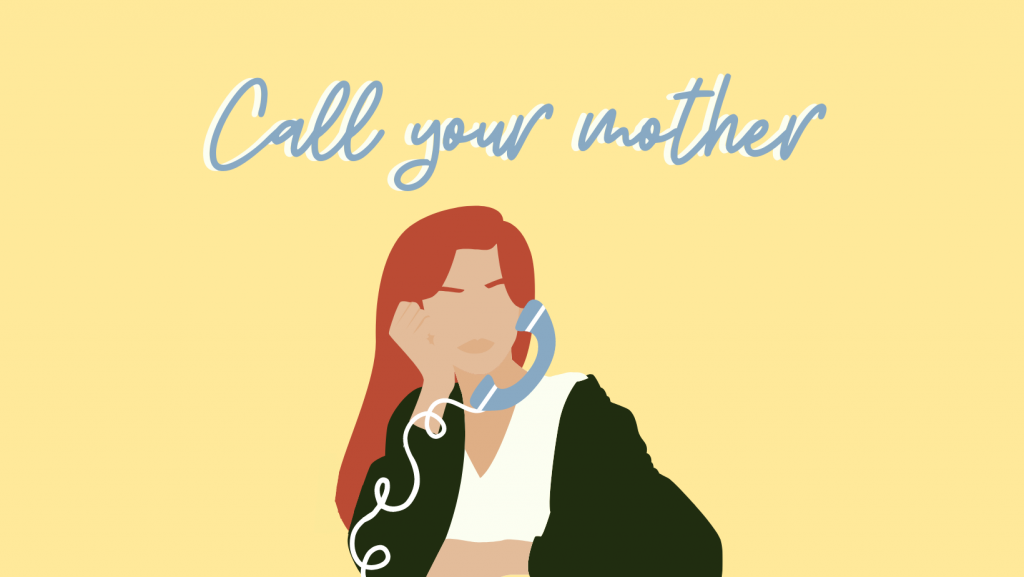
Have you recently witnessed a group of seniors having mental breakdowns in your residence hall? Noticed a junior scrolling through the pages of Handshake for summer internships or nervously updating their LinkedIn profile? Welcome to application season.
For all the 2021 graduates out there, this statement probably induced a flutter of anxiety. If you give your mom or a friend a call to vent about this anxiety, their response will probably be that it is all going to be okay, to which you would respond with a vigorous eye roll and a “yeah, right.” However, if a newspaper columnist tells you it is all going to be okay, you have no choice but to believe it.
One major cause of anxiety for college students on the job hunt is imposter syndrome. Have you ever felt like it was a mistake someone hired you or gave you an opportunity, or like you are much less capable or intelligent than your peers believe you to be? That’s imposter syndrome.
An NPR Life Kit article provides several useful tips for overcoming imposter syndrome, like taking a break or making a list of your talents. Simply recognizing that you are experiencing imposter syndrome is also helpful. Remind yourself that everyone else also feels unqualified sometimes, but it doesn’t mean that it’s true.
I used to feel a sense of shame any time I would apply for something I felt unqualified for like it was an embarrassment for me to even think I was good enough. These thoughts are common, but not helpful to anyone. It never hurts to throw your name in the hat.
Some of these feelings of being unqualified come from our tendency to compare ourselves to others. You are never going to have the most prestigious internship or the most impressive resume, and that is okay. Remember that no matter how little experience you have, someone out there with less experience has gotten a job. Remember the 45th president? Sometimes even the paper-perfect applicant doesn’t get the gig – and if they do, it might not end up being very enjoyable.
So, now you have the confidence to go after the job you want. The next big, anxiety-inducing problem is deciding what job it is that you want. Some people have known since birth that they wanted to be a doctor, teacher or a nurse. For the rest of us non-profit, English and philosophy triple majors, the dream job question feels like more of a nightmare.
This societal obsession with having a solid career plan is both ridiculous and naive. Life rarely works out how you imagined or planned it – not because you are not good enough to make your dreams come true, but because factors like family crises or global pandemics have a way of throwing things off track.
Sometimes, it’s good things that derail our plans. Better, unforeseen opportunities come along. A friend invites you to help start a business with them. An afternoon of volunteering turns into a lifelong career. The point is that few career paths are linear.
I have had multiple mentors in the advertising field who never planned on going into advertising. None of my mentors still hold the jobs they got right out of college. However, any life experience always becomes helpful in unexpected ways. Maybe your first job will introduce you to someone who will help you find your passion, or teach you a skill that will prove necessary in the long run.
If you do think you have it all figured out, it is okay to change your mind. My dad was a business major until his second semester of the senior year of college when he decided what he really wanted to do was go to dental school. Now, he has been a dentist for the past 30 years – and that business degree was pretty helpful when he started his own practice.
Life after graduation is going to be okay because you are going to make it be okay. Apply for everything that sounds remotely interesting. You can always change your mind and withdraw the application or turn down the job, but it’s good to hold off on shutting any door of opportunity for as long as possible.
You will feel better once you make a plan, and a back-up plan and a second back-up. These plans are not written in stone – no plan is. Rather, it’s a simple guide to help you figure out what your next move is. Talk through these plans with a parent or a friend, someone who can help keep the imposter syndrome at bay and remind you that you are qualified and deserving of a bright future.
Your first job does not need to be “the dream.” In fact, you don’t ever need to have a job that makes you leap out of bed in the morning and never want to come home. You should value yourself for more than just productivity. There are people in your life who will love you and care for you regardless of if you have the perfect post-grad plan. The real world is a scary ocean of possibility and responsibility, but there are people out there who will never let you drown.
